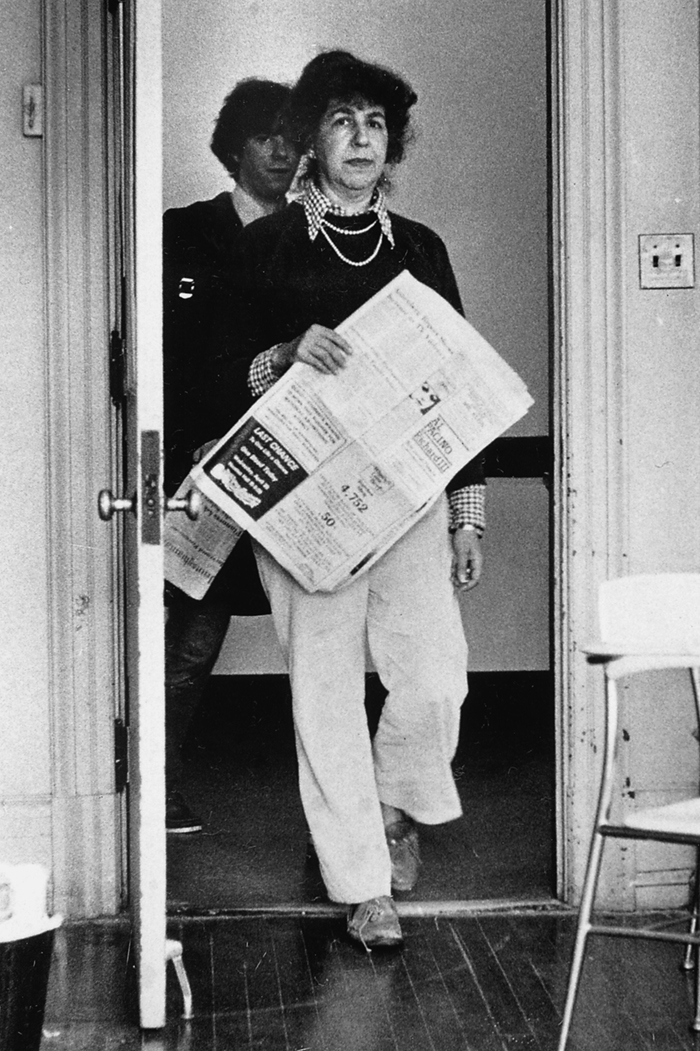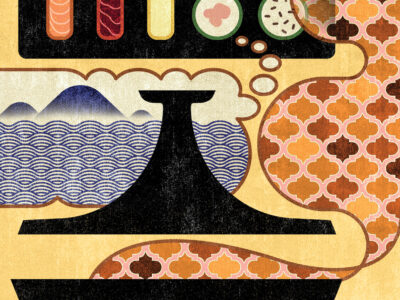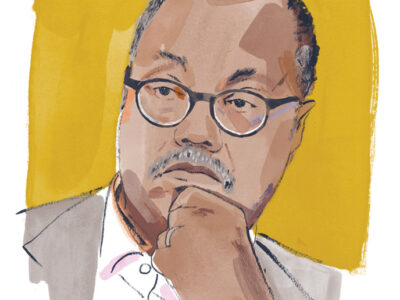
Past winners of the award honoring the legacy of a beloved writing professor answer the question “Why go into journalism?”
In what has become an annual tradition, a group of past winners of the Nora Magid Mentorship Prize visited Kelly Writers House in October to discuss their experiences working as reporters, editors, and in other jobs in media—and not coincidentally, to encourage would-be journalists among current Penn seniors to apply this year (by January 24, 2024). The prize includes a $5,000 award as well as professional mentoring assistance for the winner and finalists provided by the “cult” of Magid’s former students, known as “Nora-ites,” and a growing cadre of “second-generation” members who have been impacted by her legacy [“The Nora Network,” Mar|Apr 2013].
This year—marking the prize’s 20th anniversary—represented something of a generational change in that, for the first time, the prize winners took the lead in organizing the panels. There were also more panels than usual, with a session focusing specifically on political reporting along with the usual discussion of careers in media and journalism more generally, plus a workshop on developing story ideas offered to a select group of current Penn students.
Magid, who died in 1991, was a lecturer in the English department known for her relentless support of students interested in careers in nonfiction. In the two decades since Stephen Fried C’79 and Eliot Kaplan C’78 led the effort to fundraise for and establish the prize in 2003, it has grown from $1,000 to $5,000—one of the largest prizes given through writing programs at Penn.
This year’s events kicked off with a lunchtime panel on political reporting moderated by former Cosmopolitan editor and New York Times bestselling author Jessica Goodman C’12 [“Arts,” Sep|Oct 2020].
Participants shared some “wild war stories” (as Goodman put it) of their experiences reporting on politicians, from New York Times national political reporter Matt Flegenheimer C’11’s personal invitation from former New York Mayor Bill de Blasio to profile him and his wife in the wake of their high-profile divorce, to Times Albany bureau chief Luis Ferré-Sadurni C’17’s biggest regret: turning down lunch with Kathy Hochul, who little did he know would soon become the governor of New York. Ashley Parker C’05, a senior national political reporter for the Washington Post [“Profiles,” Sep|Oct 2017], also shared the experience of moderating a Democratic presidential debate in 2019 on MSNBC (alongside fellow Penn alum Andrea Mitchell CW’67 Hon’18) [“Profiles,” Jan|Feb 2020].
“Write the stories that you and your friends are talking about at the end of the night,” said Parker. That’s the kind of advice that got her story about Mitt Romney’s haircut on the front page of the New York Times.
“Write what they do, not what they say,” advised Ferré-Sadurni. A big part of his job is maintaining relationships with politicians and their teams across New York, particularly the governor. Part of that is drawing a line between what his sources tell him and the actions they take.
Parker also shared advice on how to break into the field: being a jack-of-all-trades and a hard worker is essential. “If you are coming out of college, the most valuable thing you can do is be able to write, be able to report, and be a nominally professional adult who meets deadlines and doesn’t have temper tantrums,” she said.
That evening, Parker was joined by Jason Schwartz C’07, senior editor at Sports Illustrated; Madeleine Ngo C’20, economic policy correspondent for the New York Times’ Washington bureau; and moderator Isabella Simonetti C’21, media reporter at the Wall Street Journal.
Parker touted the value of the “full-circle mentorship” provided through the prize, beyond networking or writing help. And in addition to the value of the prize and the Nora community in their careers and lives, the panelists also emphasized the importance of participating in student journalism.
“Take advantage of the DP,” Schwartz said. “You don’t realize it at the time, but it’s probably the most fun you can have in journalism because there’s nobody there who knows enough to tell you not to do something. Everyone’s figuring it out together.”
In answer to the big question—Why go into journalism when there are so many other careers and opportunities as Penn students?—Schwartz offered, “When you’re working on a story, chances are you’re talking to them about the most important thing in their life and they care a lot about it. And it’s interesting to have conversations with those people.”
“If there’s anything you think you would enjoy as much as journalism, you should do that, because it will by far be an easier pursuit and pay better,” said Parker. “But for me, there was nothing I could imagine wanting to do as much as I wanted to be a journalist.”
—Meg Gladieux C’23 GEd’24




